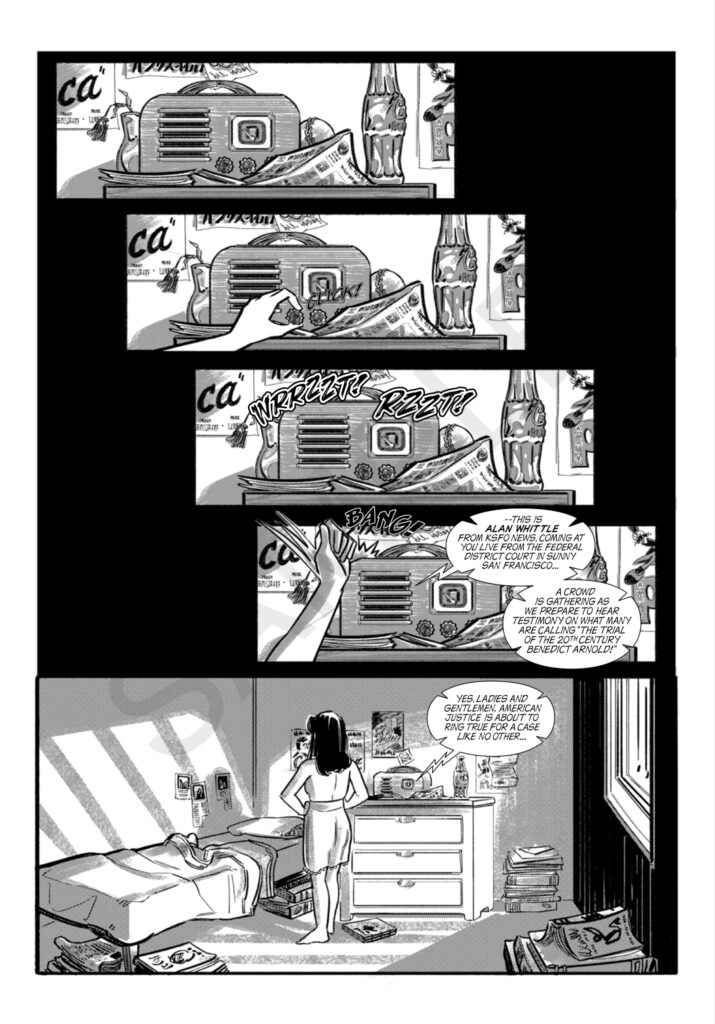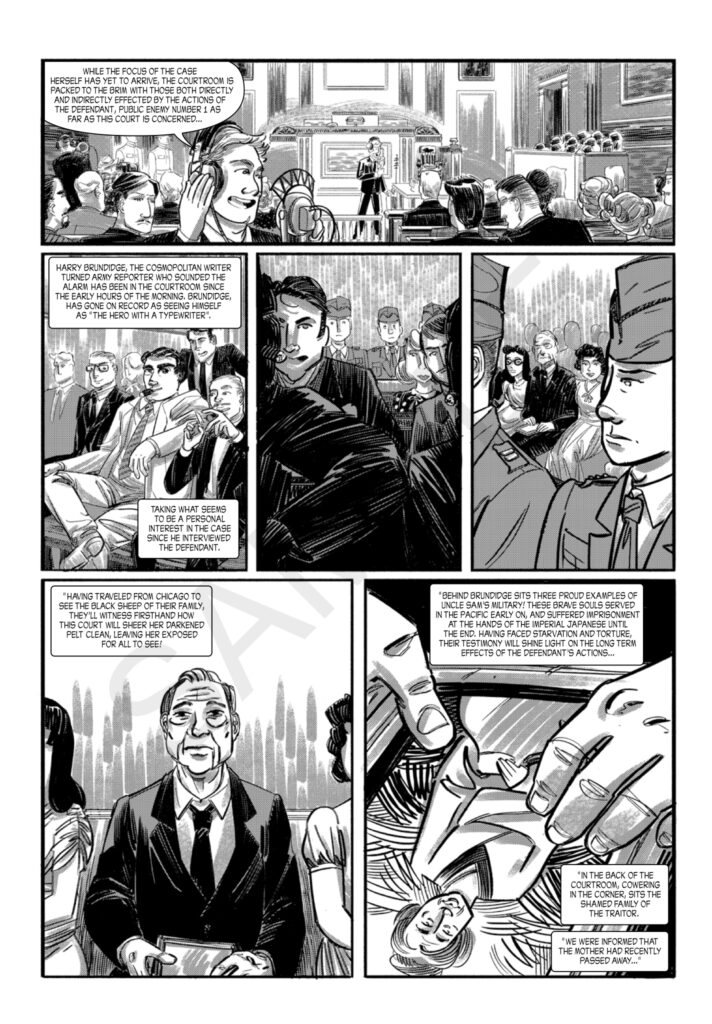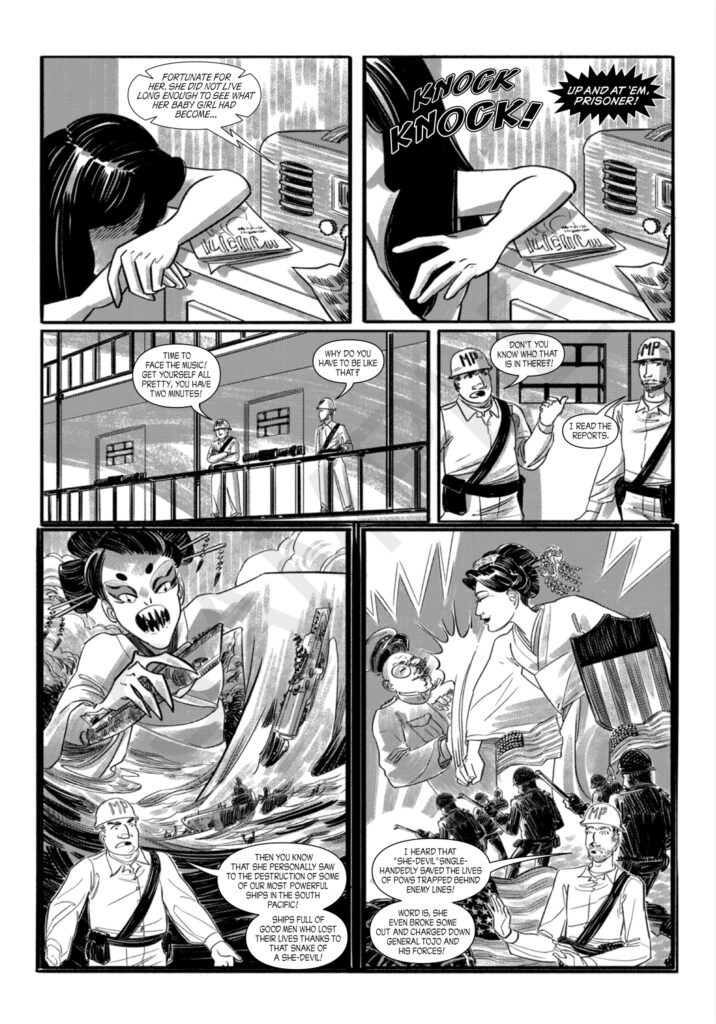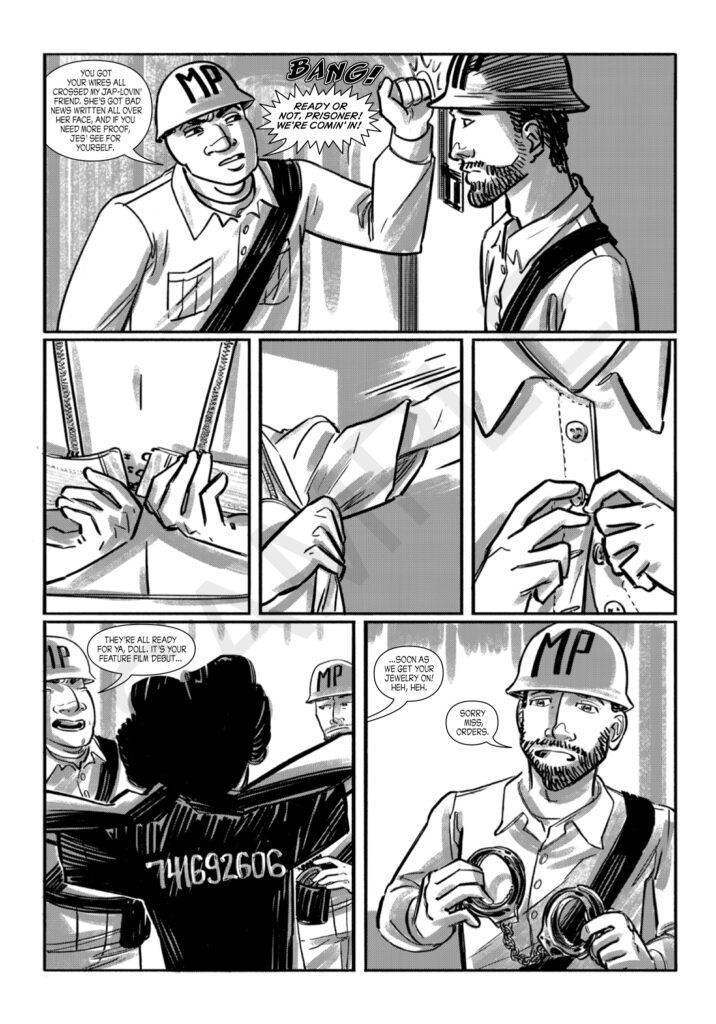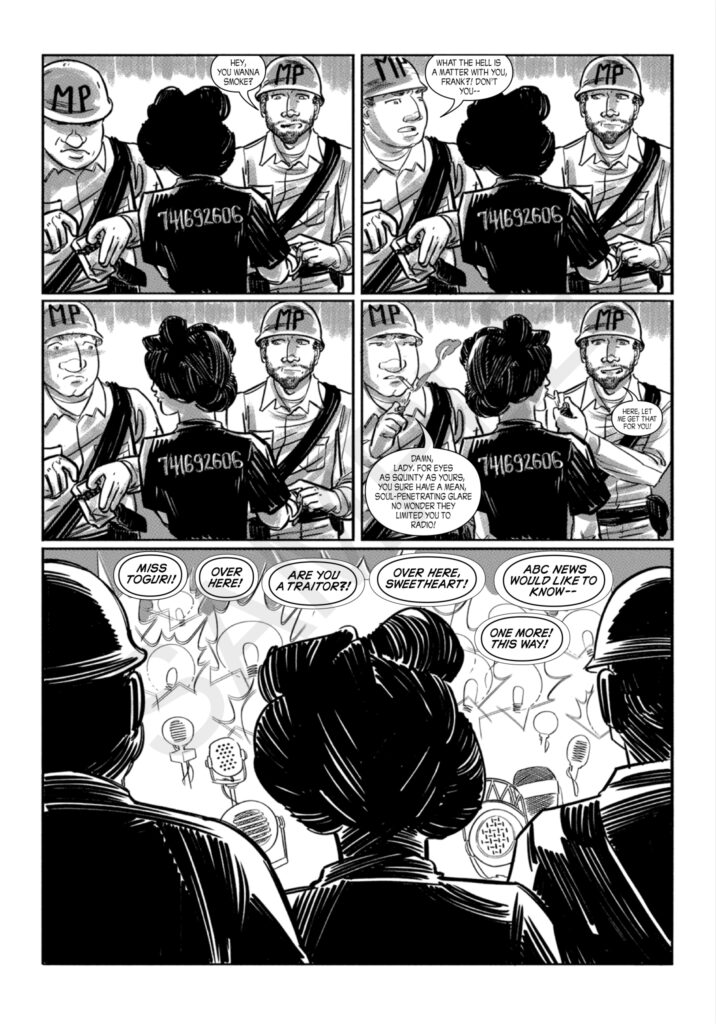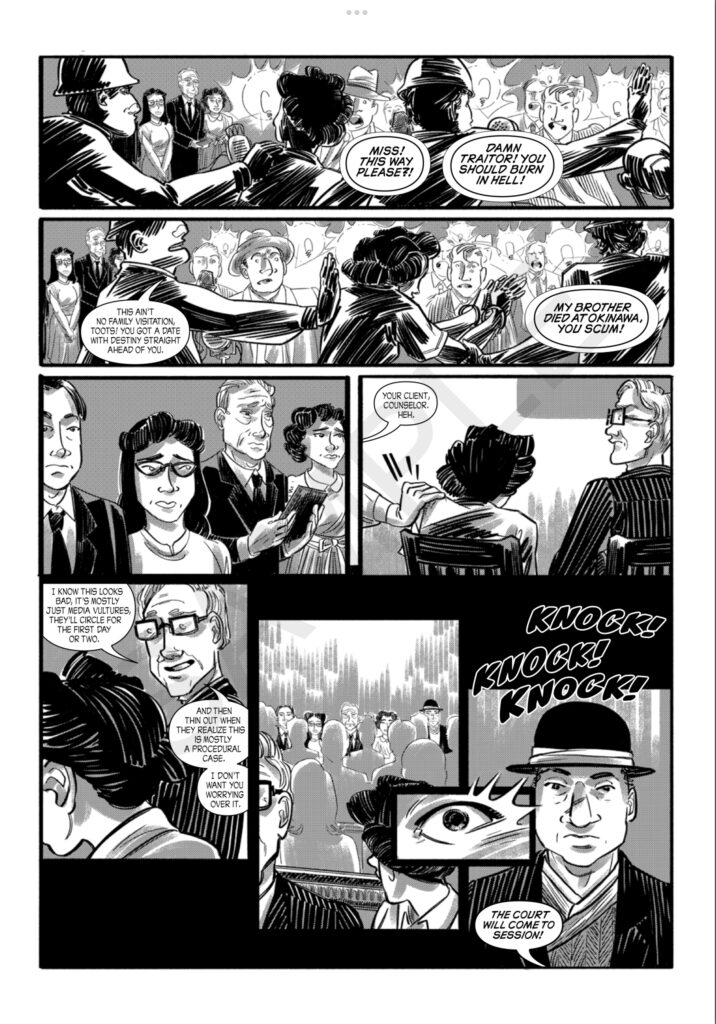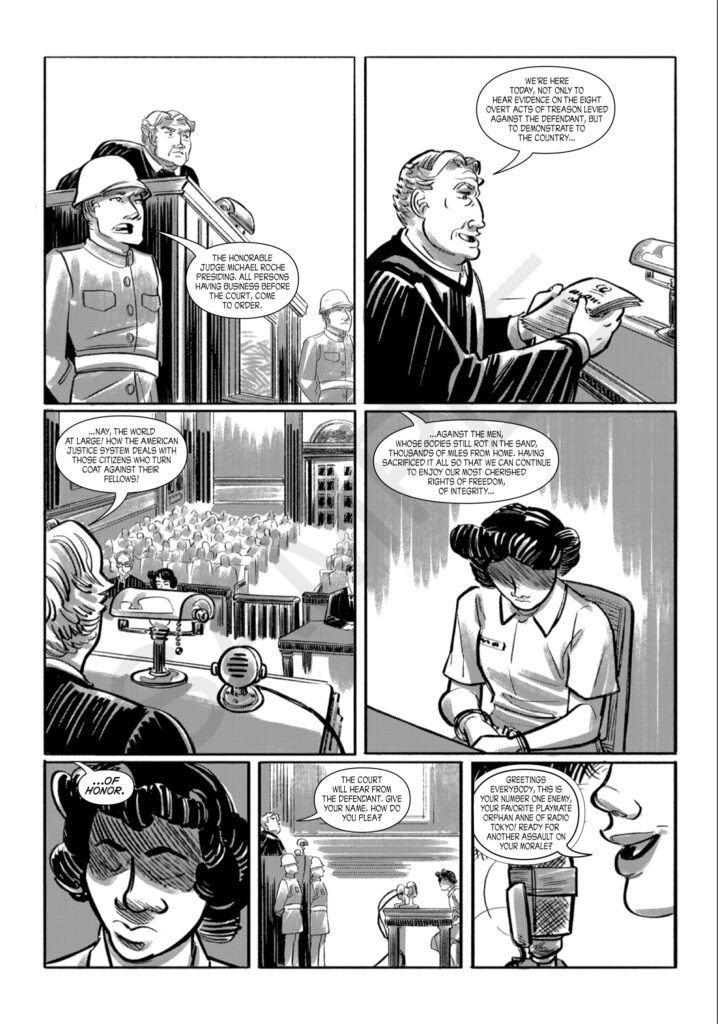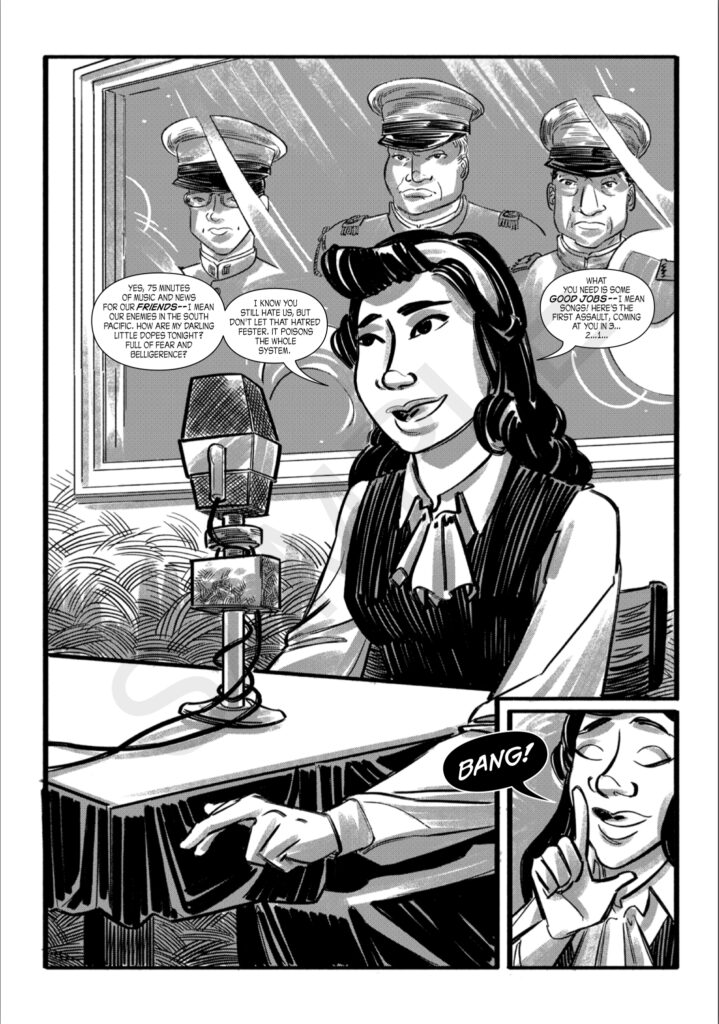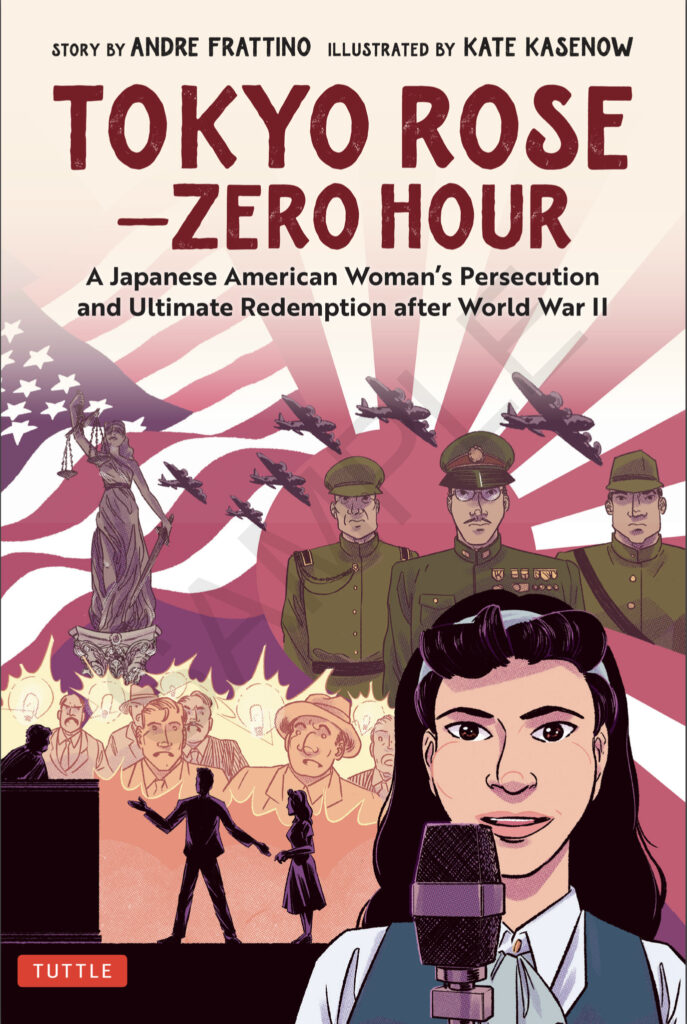
- Tokyo Rose- Zero Hour
- Tuttle Publishing
- Written by Andre Frattino
- Illustrated by Kate Kasenow
- Letters by Janice Chiang
[Quote] “Hello there you fighting orphans somewhere in that pool of water called the Pacific. This is your playmate, Orphan Ann, taking roll call…” – Orphan Ann, Zero Hour (August 11, 1944)
Iva Toguri D’Aquino (July 4th, 1916 – September 26th, 2006) led a life full of uplifting highs & gut-wrenching downs. Born & raised in the United States, her parents legalized immigrants proud of both their heritage and their country of choice (Captain America was her father’s favorite comicbook), Iva was sent on a trip to Japan, a place she’d never been, to help care for a sick aunt she’d never met. After some time spent there, Iva was in the process of gathering the necessary paperwork to return home when the unthinkable happened… Peal Harbor was bombed, America had joined World War II, and Iva’s travel plans were put on hold.
Being of Japanese descent but American born complicated Iva’s life farther as the already isolated people of Japan became even more distrustful of those labeled as outsiders. In Iva’s case, being nisei (a son or daughter of Japanese immigrants, born & educated in America) put her and all others like her in the middle of a complex dilemma. When the Japanese government gave her the option to broadcast propaganda on their behalf or be officially labeled an enemy of the state, the choice wasn’t really much of one. Through a series of unfortunate events, Iva found herself a part of the Radio Tokyo Zero Hour program and the on-air persona of Orphan Ann was born.
I’m going to start this review out by addressing a potentially hot topic. No, I have not personally verified the information provided in this graphic novel. I have linked the Wikipedia page dedicated to Iva Toguri D’Aquino above, which does provide a pretty extensive list of references for the dedicated fact-checker. I will say that from what I have read, Tokyo Rose- Zero Hour might be one of the most important pieces of work that you’re likely to read anytime soon.
Writer Andre Frattino felt strongly about the subject of Tokyo Rose. In his youth, he spent a fair amount of time glued to any screen that happened to be playing a World War II movie or show. He was further motivated by the life of his grandfather, Stanley Kuchinski, who served in the United States Marine Corps (Semper Fi, sir), was stationed at Pearl Harbor and saw action at The Midway, Tulagi, Guadalcanal, Guam, & Okinawa. One thing made clear in Frattino’s forward for the book was that he was serious about getting past all of the caricatures of the Tokyo Rose persona, to dig into the facts surrounding young Iva Toguri in particular. Out of that research, he’s put together a fantastic story about a young lady who is pushed into an impossible situation & came out of it remaining true to herself. The narrative is entertaining, showing all of Iva’s wry humor and determination, while never flinching away from the wrongs done to her by both the American & Japanese government.
As is always the case, any good graphic novel needs an artist, and stepping up to the plate for this one is Kate Kasenow. Likewise feeling the need to do justice to Iva’s story, Kasenow comes in with a relatively loose black & white style. In her characters, she’s done a great job of portraying the distinct features of a pretty large cast, making sure that no one person looks like any other (not so easy a thing in a two-tone book). With a few strokes of the pen, Kasenow is able to show emotional content in her facial features, putting emphasis on the personalities of the people she’s drawing. In her settings, she pays close attention to the style and look of the era, without crowding the panels or cluttering the page. I’ll go on the record as saying that black & white comics don’t always work when an artist tries to cram in too much detail, but it’s a thing of beauty when an artist trusts their work enough to use a more minimalist approach. Kate Kasenow is in the latter group.
Not many people pay attention to what letterer is working on any given book. Since I’ve been writing for thePullbox, I’ve come to realize how important a good letterer is and have a group of pros I’ll recognize as soon as I see their name on the cover. Janice Chiang is one of those. She’s got a down to business, no muss/no fuss approach that avoids all of the pitfalls to be found in lettering. Her panels are easy to read, never crowding the artwork or trying to put on a fancy show where it isn’t needed. Yet she’s able to convey personality, putting emphasis where it needs to be and staying away from migraine inducing fonts. If none of this praise makes much sense to you, count yourself one of the lucky readers who have yet to come across a case of really bad lettering.
Tokyo Rose- Zero Hour is a beautifully told story that encompasses patriotism, personal values, & the commitment to stand by those values regardless of cost. Full of historical figures and real-life people, all with their own agendas and beliefs, it’s not hard to see how the story of one young woman can get muddled and lost. And that’s what I think makes this an important book for anyone with an interest in history, with a focus on a woman of strong character who, like a certain Captain you may have heard of, took a stand and said “No… you move.”
Final Score: 13/13
